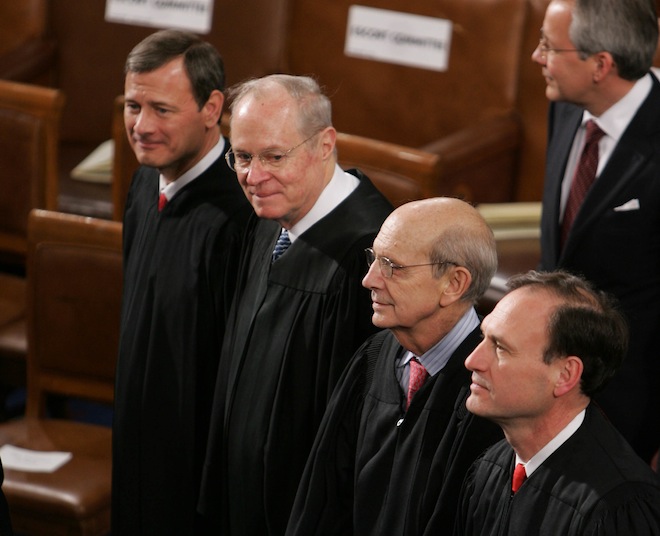The Supreme Court punted on affirmative action Monday, issuing a 7-1 decision that sent the case back to the lower courts for a do-over.
Eight months after the case was heard, the high court punted, deciding not to issue even a narrow ruling on the merits of the University of Texas’s affirmative action policy for student admissions, let alone a broader decision revisiting the principles of affirmative action.
The majority decision was written by Justice Anthony Kennedy.
“Because the Fifth Circuit did not hold the University to the demanding burden of strict scrutiny articulated in Grutter and Regents of Univ. of Cal. v. Bakke,” the decision read, “its decision affirming the District Court’s grant of summary judgment to the University was incorrect.”
Kennedy concluded that the Fifth Circuit Court of Appeals did not properly rule on the university’s policy. “[S]trict scrutiny does require a court to examine with care, and not defer to, a university’s ‘serious, good faith consideration of workable race-neutral alternatives,'” he wrote.
The decision sends the case back to the appeals court, and the court hinted that the case might need to go all the way back to the district court for further proceedings.
“I’m surprised it took so long given that they didn’t do hardly anything!” Brian Fitzpatrick, a law professor at Vanderbilt and former clerk to Scalia, told TPM in an email.
Justices Antonin Scalia and Clarence Thomas filed concurring opinions; Thomas dissented in part. Justice Elena Kagan recused herself and did not take part in the proceedings.
The lone dissent was from Justice Ruth Bader Ginsburg, who argued that UT “has taken care to follow the model approved by the Court” in prior affirmative action decisions.
The Supreme Court has already suggested it intends to revisit the legal principles behind its landmark 2003 ruling in favor of racial preferences in college admissions. It will hear a case this fall involving the University of Michigan’s policy of using race as one of many factors in its admissions process — the policy at the heart of its 2003 case, Grutter v. Bollinger, validating affirmative action. The makeup of the Court has since swung against affirmative action: Justice Sandra Day O’Connor, who wrote that opinion, was replaced in 2006 by Justice Samuel Alito.
The case is Fisher v. University of Texas. It was brought by a student, Abigail Fisher, who alleged that she was unfairly denied admission to UT because she’s white.






